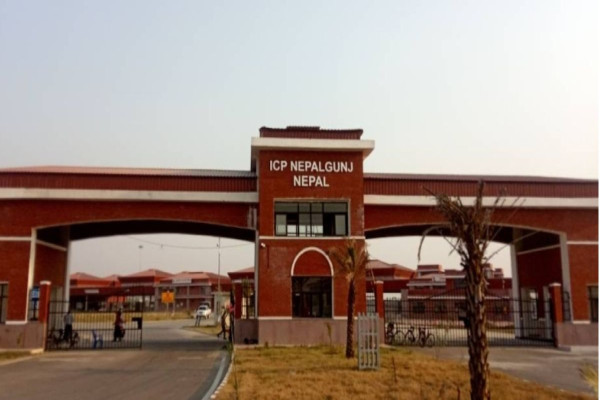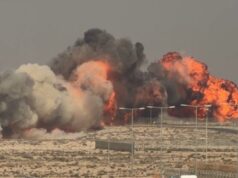
India and Nepal commerce secretaries meeting in Kathmandu recently, reviewed market access issues, Intellectual Property Rights (IPR) and customs duties.
The agenda also covered review of the Treaty of Transit and the Treaty of Trade, proposed amendments to existing agreements, the harmonization of standards and the synchronized development of trade infrastructure including the electrification of the Raxaul-Birgunj rail line.
Trade, Transit
The Nepali side particularly wanted to amend the existing bilateral trade and transit treaties and the two sides agreed to hold further discussions on the matter.
“The two sides agreed to hold the next meeting for the comprehensive review of the bilateral trade treaty,” Nepal’s Ministry of Industry, Commerce and Supply said in a statement.
Baburam Adhikari, joint secretary at the commerce ministry said a technical meeting would be held for the purpose. “We expect to hold the meeting within two months,” he told StratNewsGlobal.
The current trade treaty was signed in 2009 and Nepal which has been providing reciprocal duty-free access to Indian agricultural products, now wants to maintain a certain level of tariff to reduce the widening trade deficit with its southern neighbour.
The treaty does not bar Nepal from imposing duties on India’s industrial products. On the other hand, India grants Nepal duty-free access to both industrial and agricultural products except for a few goods in the negative list.
Nepal’s Exports
Even though Nepal levies a five to nine per cent “Agriculture Reform Fee” on Indian agricultural goods, Nepali officials say the flood of cheaper Indian goods continues.
“On the contrary, India had requested Nepal to remove agriculture reform fee arguing that that it goes against the spirit of the trade treaty,” said Adhikari.
Nepal also wants the removal of quantitative provisions on the export of Nepali products such as vegetable ghee, copper products, zinc oxide, and acrylic yarn. Annual export quota set for vegetable ghee is 100,000 tonnes while it is 10,000 tonnes each for acrylic yarn and copper products.
Likewise, Nepal has been barred from exporting more than 2,500 tonnes of zinc oxide to its southern neighbour.
According to the World Trade Organization quoting Indian Commerce Ministry figures, Nepal imported more than $7 billion of Indian goods while exporting only $831 million last year.
The two countries have decided to finalize a letter of exchange that Nepal had sent to amend the transit treaty. It will pave the way for shipment of all type of goods by the Indian railways to the Integrated Check Posts located on the border of the Nepali cities of Biratnagar and Bhairahawa.
The treaty has allowed the shipment of bulk cargo containing four types of goods including fertilizer, coal, clinker and cement. Two sides agreed to conclude the letter of exchange under the transit treaty that would enable Nepal to use Dhamra port in Orissa and Mundra Port in Gujarat. It will also enable Nepal to use any transit route in the event of obstruction on any one route.
The letter of exchange will enable Nepal to transport the third country goods to Kolkata airport and subsequently to use railway or trucks to import such goods, according to the Commerce Ministry in Kathmandu.
“We have sought such facility for the shipment of odd-shaped cargo that cannot fit into regular containers,” said Adhikari.
India also agreed to conduct a survey to extend railway connectivity to the Integrated Check Posts based in Karkarbhitta in eastern Nepal and Nepalgunj in western Nepal as well as the one proposed for Dhodhara-Chandani in the far west.
“India agreed to intensify the process of granting quality certificates from the Bureau of Indian Standards (BIS) to Nepal’s export products as Nepali industries have been complaining about delay in obtaining such certificates due to prolonged bureaucratic process in India,” Nepali officials said.
The writer is Executive Editor Arthik Abhiyan Daily




